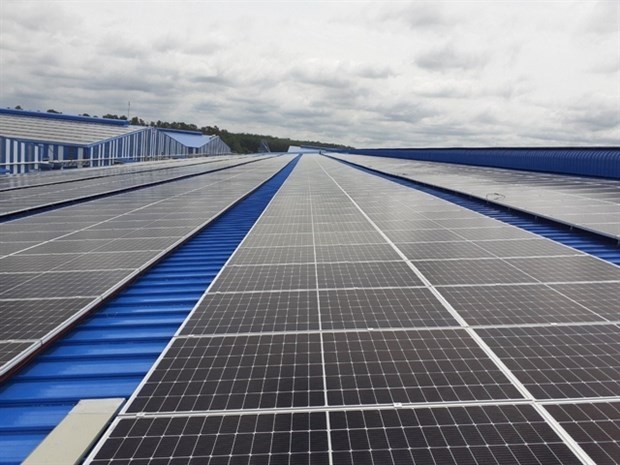
Deputy PM Tran Hong Ha highlights incentive policies for rooftop solar power installation
Latest
 |
| Deputy PM highlights incentive policies for rooftop solar power installation: Rooftop solar panels are installed at a business in Binh Duong province. (Photo: VNA) |
He made the statement while chairing a meeting held on April 10 to discuss a draft decree stipulating mechanisms and policies to encourage the development of rooftop solar power.
He said rooftop solar power is a renewable energy source that needs to be prioritised and encouraged.
He emphasised the need to mobilise resources of organisations and individuals, and take advantage of the existing transmission network.
The draft decree must include methods of rooftop solar power operation (self-production, self-consumption, linked to the national electricity system, with electricity storage equipment) as well as technological solutions to ensure the safety and stability of the base power system when connecting rooftop solar power with the grid, he said.
He said rooftop solar power, offshore wind power, biomass power and waste power are given priority for development in conditions that they meet technology, system safety conditions and have appropriate prices. Developing rooftop solar power is an economical and effective energy plan.
Procedures should be simplified for households and offices installing rooftop solar power for self-production and self-consumption, not for business purposes, except for works with special requirements regarding safety and fire prevention.
Businesses that invest in rooftop solar power for use, and at the same time install additional electricity storage equipment for sales, need to calculate reasonable prices, financial support and interest rates, he said.
According to the Ministry of Industry and Trade, rooftop solar power can be installed on houses, offices and in industrial parks for use in the form of self-production and self-consumption. It may or may not be linked to the national electricity system and is not sold to other organisations or individuals.
Do Van Nam, member of the Board of Members of the Northern Power Corporation, said businesses in industrial parks need incentives from rooftop solar power procedures and policies. Installing additional rooftop solar power requires ensuring the safety of existing buildings.
Bui Quoc Hoan, Deputy General Director of the Southern Electricity Corporation, said it is necessary to encourage businesses in industrial parks to install equipment to store unused rooftop solar power and convert it into a clean background power source, then transmit it to the grid during the evening peak at a suitable price.
According to the National Load Dispatch Centre, the power grid can remain stable and safe when renewable electricity accounts for up to 50% of total load capacity. It is possible that the power grid in the North can ensure safety and stability when the rooftop solar power capacity is maintained at 5,000-7,000MW, equivalent to the current assessment of rooftop solar power potential.

















